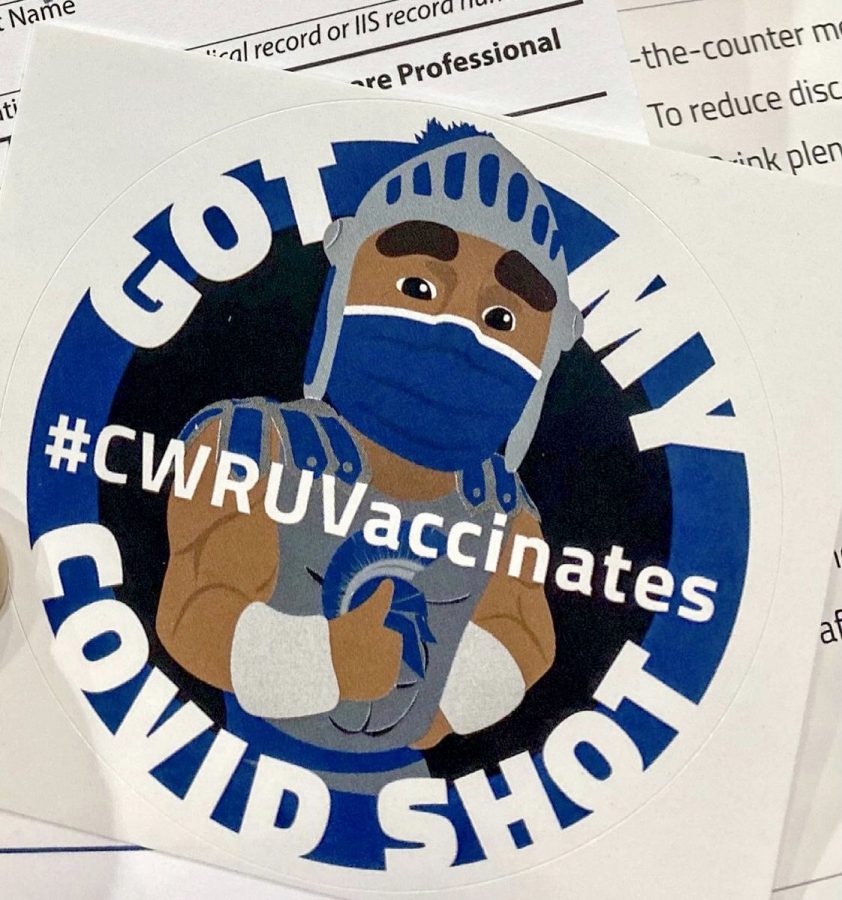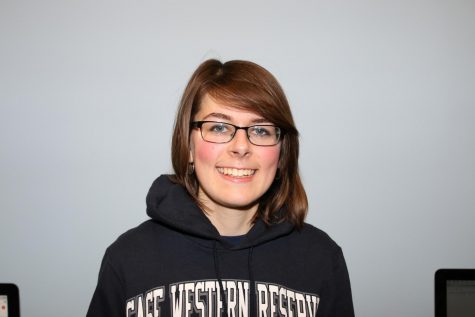Kuntzman: Everyone needs to get vaccinated
A letter to the CWRU community
April 16, 2021
To the students, faculty and staff of Case Western Reserve University,
At this time last year, I thought that the end of the coronavirus pandemic would be quickly approaching. I predicted that by June 2020, the situation would be more or less under control and “normal” life would resume in the fall. Approximately one month later, I realized how wrong I was, and I began to suspect that the pandemic would be keeping most of everyday life virtual into 2022.
Today, I have hope that neither of these realities will come true. We have two vaccines in circulation. Vaccines are available to all adults in many states and full eligibility is expected to begin nationally on April 19. Whether or not life will go back to “normal” in the fall remains to be seen, but we have the potential to have a much safer CWRU community by August.
That said, making a safe return to campus possible is the collective responsibility of every member of campus. Vaccines are free and available in a number of locations on and near campus, including at the Veale Recreation and Athletic Center, which students have been informed of multiple times.
For some people, getting vaccinated may be unsafe or less effective due to medical reasons. As someone taking immunosuppressive medications, I know that it is unclear how effective the vaccine will be on people like me. I have accepted the fact that, even after I get my second dose of the Pfizer vaccine, I may not be as well protected as an adult my age with a normal immune system. What I find harder to accept is the possibility of getting infected by a voluntarily unvaccinated adult who could return to campus next fall.
Vaccination campaigns are only effective when they inoculate a supermajority of the population. Mass vaccination reduces the population of people who can contract a disease. Because low coronavirus rates will most likely be the deciding factor for when pandemic safety measures can be rescinded, deciding to receive the vaccine is not an individual choice. It is a decision with consequences that can affect others, and therefore should be viewed as a community decision, rather than a purely individual one.
Despite the benefits of vaccination, the process can place a short-term burden on individuals. The coronavirus vaccine can cause side effects that may require setting aside time to recover, especially for young people who are more likely to experience these side effects. In the middle of the semester, finding this time can be difficult. For anyone reluctant to get vaccinated at this time because of concerns about losing time to recovering, I understand your rationale. The end of the semester is approaching and time can be scarce.
However, academics cannot be used as justification to avoid vaccination. Vaccination is extremely important to both individuals and public health, so everyone who can safely do so should get vaccinated.
To encourage high vaccination rates among students, there are two actions universities should adopt. The first is securing vaccines for students and making sure that they are easily accessible. CWRU has already accomplished this by becoming a vaccine distribution site, readily available to students and the local community.
Second, the university must ensure students are excused from academic responsibilities while they need to recover from any side effects—typically one or two days from vaccination. The interim president and provost did inform faculty that they should accommodate students who experience symptoms because of the COVID-19 vaccine, a necessary and important step to helping students get vaccinated; however, simply telling faculty to accommodate students does not ensure that students will receive the support they need.
Creating policy is not the same as enforcing policy. As such, the university needs to make, and announce, a plan to ensure that students experiencing symptoms after vaccination receive the support they need. This plan could take many forms, from having non-faculty advocates that students can talk to if they need help getting extensions after vaccination, to having University Health and Counseling Services talk to students about their symptoms and fill out a note verifying that they were contacted by the student. Regardless of the exact form of the plan, it should not merely rely on faith that professors will accommodate students, but rather create a clear platform for students to receive assistance and report professors who are failing to comply.
A healthy campus community requires collective responsibility—all CWRU members, including students, faculty and staff need to promote vaccination. In order to stop the spread of COVID-19 at CWRU, not only do as many members need to get vaccinated as possible, but the university also needs to create and enforce policies that encourage vaccination. Supporting others in getting vaccinated can be just as important as individuals getting vaccinated themselves. We should aim for a nearly 100% vaccination rate by the fall, if not sooner. We can have a safer CWRU for the next academic year, but we need to act as a community to encourage all of our members to get vaccinated.




